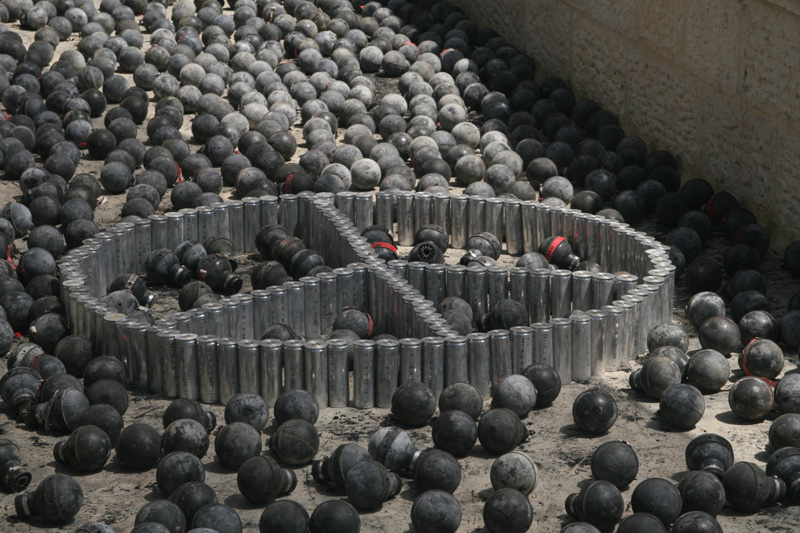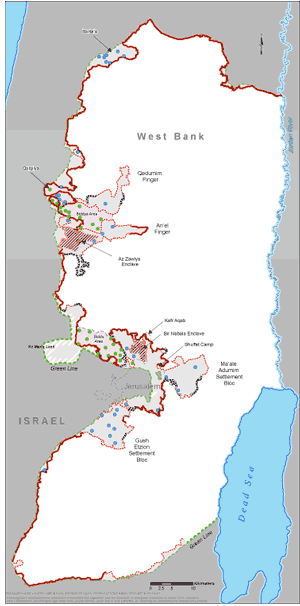
Press release
23 December 2010
Abdallah Abu Rahmah, a school teacher and coordinator of the Bil'in Popular Committee Against the Wall, was indicted in an Israeli military court yesterday. Abu Rahmah was slapped with an arms possession charge for collecting used tear gas canisters shot at demonstrators in Bil'in by the army and showcasing them in his home.
An indictment was filed in a West Bank military court yesterday for incitement, stone throwing and arms possession charges against Bil'in Popular Committee

An exhibition of spent tear gas grenades and projectiles in the village of Bil'in for which Abu Rahmah was indicted on. Picture credit: Oren ZivActiveStills*
coordinator, Abdallah Abu Rahmah. On receiving the indictment Adv. Gaby Lasky, Abu Rahmah's lawyer said that “the army shoots at unarmed demonstrators, and when they try to show the world the violence used against them by collecting presenting the remnants – they are persecuted and prosecuted. What's next? Charging protesters money for the bullets shot at them?â€
For more details: Jonathan Pollak +972546327736
On December 10, exactly one year after receiving the International League for Human Rights' Carl Von Ossietzky Medal – on International Day of Human Rights – Abu Rahmah was arrested during an Israeli military night-time raid for his involvement in organizing unarmed protest against the Wall in the village of Bil'in. The indictment served yesterday also includes charges of incitement and stone throwing.
As part of a recent wave of repression against the Palestinian popular protest movement, Israel has charged numerous grassroots organizers with both stone throwing and incitement. In at least one case, that of Mohammed Khatib from Bil'in, the court found evidence presented on a stone-throwing charge to be falsified.
In the past six month, 31 residents of Bil'in have been detained by the military, and in neighboring Ni'ilin, 91 have been arrested in the past 18 months.
Abdallah Abu Rahmah's arrest and indictment, as well as that of Adeeb Abu Rahmah and the arrest of Jamal Juma' of the Stop the Wall organization are part of a wider attempt to equate grassroots organizing with a hefty of incitement.
This is part of the army's strategy to use legal measures as a means of quashing the popular movement.
